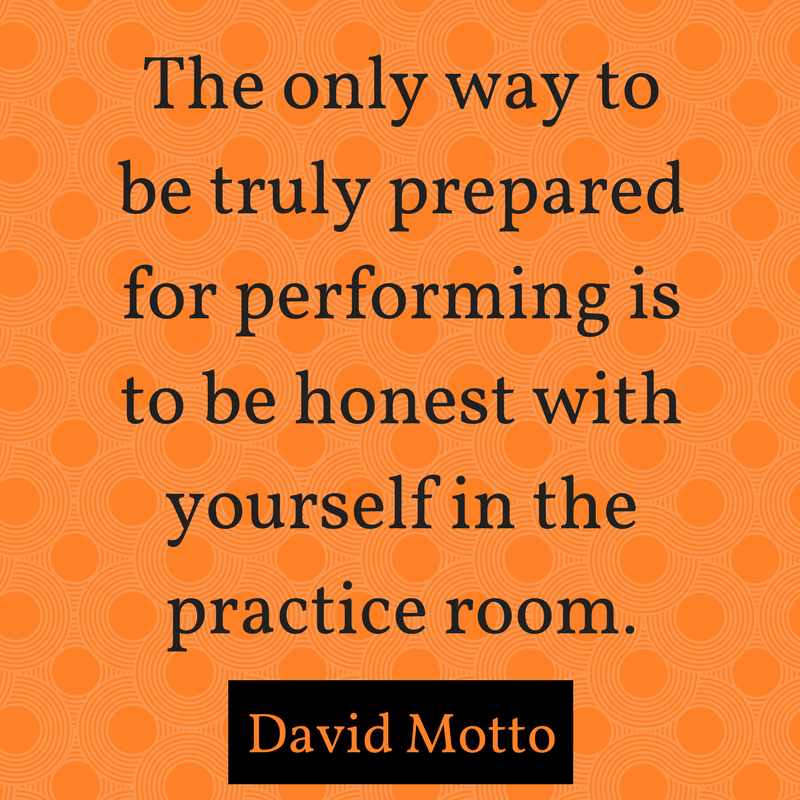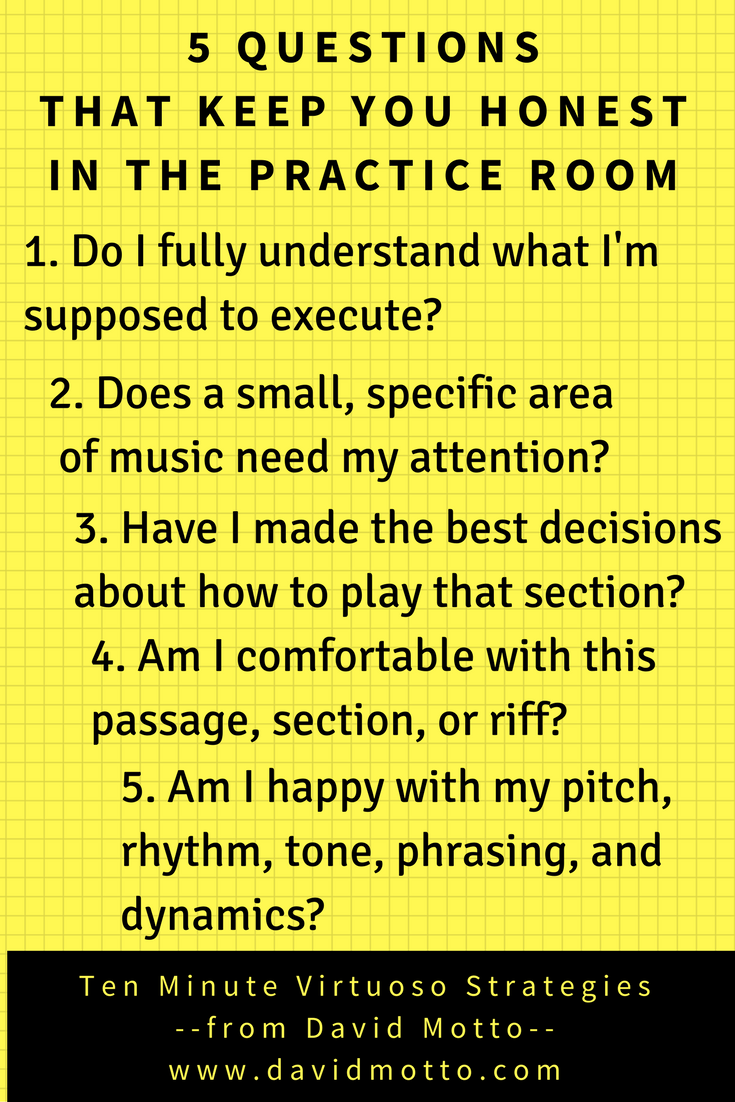David Motto’s Practice Tip of the Week:
Staying Honest in the Practice Room
Why Honesty Matters
Practicing is about exploring what you can do with your music. Done correctly, it leads to feeling confident and in control when you perform so you can trust that you’re truly ready.
During a performance, you can have fun and know that you’ve done your best to be ready. Or, during that same performance, you can constantly be worried and not really know if you’ll be able to play everything.
The only way to be truly prepared for performing is to be honest with yourself in the practice room.
I’ve developed 5 questions that all musicians can ask in the practice room to honestly evaluate their forward progress.
5 Questions to Ask Yourself

1. Do I fully understand what I’m supposed to execute?
You can’t ask your muscles to play accurately if your brain hasn’t first figured out exactly what you’re supposed to do. Understand the pitches and rhythms before you try to play them!
2. Does a small, specific area of music need my attention?
You’ve got to be honest about this. Is there one small area of music that you’re avoiding? If there’s something that needs your attention, please give it your attention. You’ll get the most out of your finite practice time if you spend most of your time on these small, challenging sections of music.
3. Have I made the best decisions about how to play that section?
Occasionally, you’ll come up with a technique that allows you to quickly learn a challenging section of music. Double check that you can use this technique transitioning into the section and out of the section. Sometimes the first way we figure out to play something isn’t actually the best way.
4. Am I comfortable with this passage, section, or riff?
Be honest with yourself. Are you comfortable playing that area you’ve been working on, or are you still worried about it? You might be somewhere in between, for instance feeling comfortable at slow tempos but worried about playing at performance tempo. That’s okay. Just keep track of where you are and what still needs improvement.
5. Am I happy with my pitch, rhythm, tone, phrasing, and dynamics?
Playing all the right notes at the right time is often the goal of practicing musicians. And, that is a worthy goal! Once you can play the correct pitches and rhythms, make sure you can always successfully play them. Also, be sure you like how you’re playing all those notes so you sound exactly the way you want to sound.
These 5 questions let you quickly and honestly evaluate where you are in the practicing process. If there is something that needs more work, admit it honestly and focus on the needed improvements. Don’t make a big deal out of it. The whole purpose of practicing is to make those improvements!
Paying Attention to Your Gut Feelings

To work on honesty in the practice room, try this:
The next time you find yourself saying, “That sounds pretty good” or “I think I’ll be able to play that at the next rehearsal,” stop for a minute and decide what you really mean.
If you are truly satisfied and truly confident, then it’s okay to move on to something else.
However, if it doesn’t honestly sound good enough, or if you’re not really sure you’ll be successful at that rehearsal, then give it another try. Admit to yourself that the music needs more work and target the specific areas that need improving.
There is a big difference between saying to yourself, “That’s good enough for today” when you truly mean it and saying exactly the same thing with a twinge inside that you can actually do better.
If your gut instinct tells you the music isn’t good enough for today, then keep working. What’s the best way to keep working? Ask yourself the 5 questions and give brutally honest answers.
Your honesty will improve your music, and the truth shall set you free.
To Your Musical Success!
David Motto

Carol – You are very welcome! Thank you for reading my Practice Tip of the Week.
Love it – thank you!